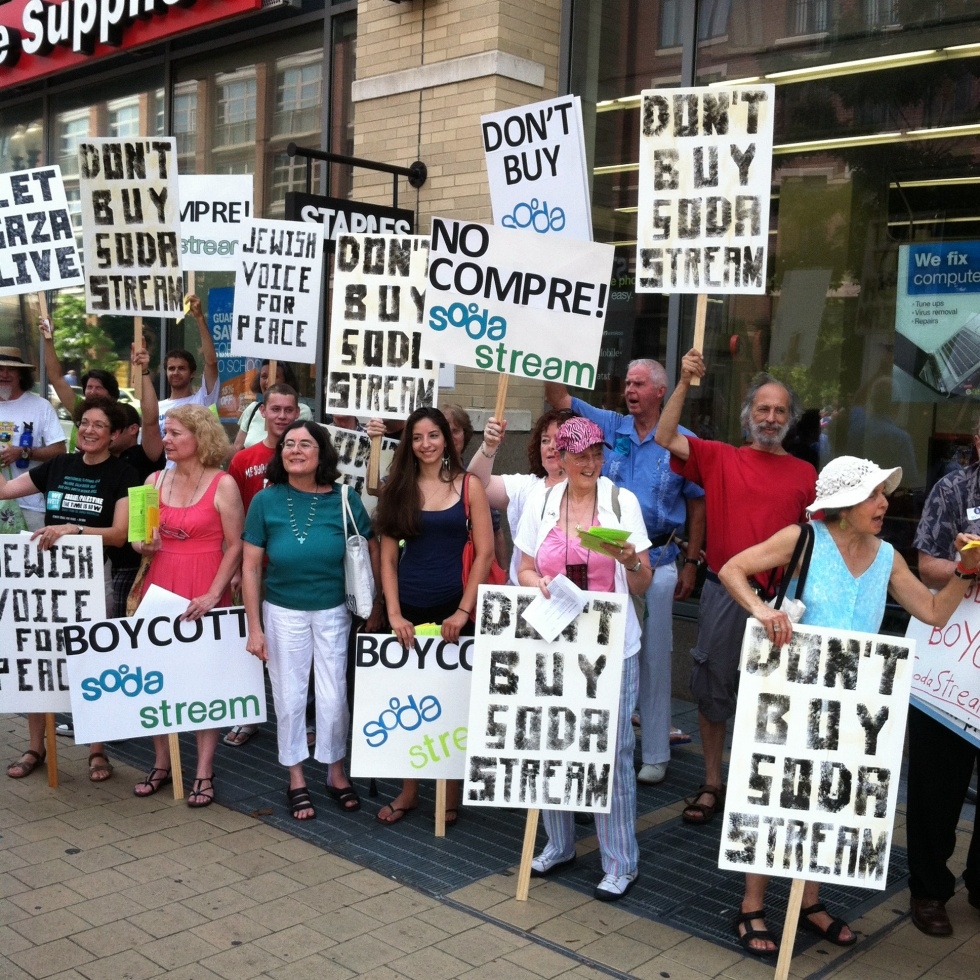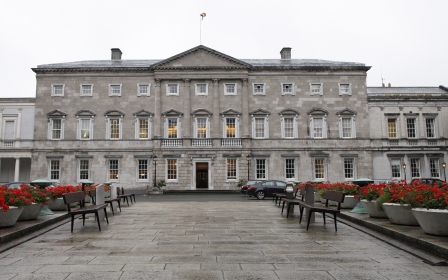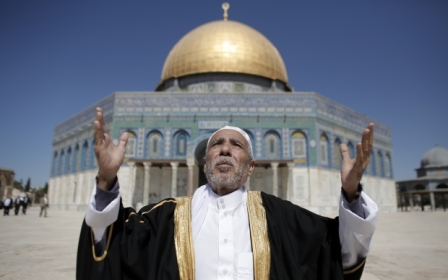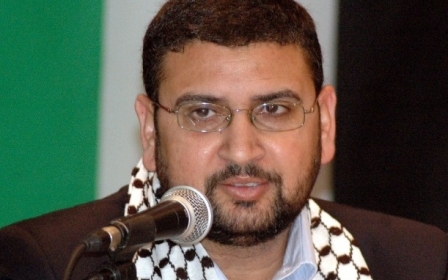Sodastream announce closure of West Bank factory, Palestinian activists exclaim victory

Israeli drinks firm SodaStream, hit by international boycott calls, said Wednesday it was shutting a controversial factory in a West Bank settlement as it announced a nine percent fall in sales.
The firm, which manufactures a device for making fizzy drinks at home and was embroiled in a row earlier this year involving Hollywood actress Scarlett Johansson, said it would relocate the factory by the end of 2015.
SodaStream said the plant closure would "improve the operational efficiency" of a group that has been listed on the New York stock exchange since 2010. Another factory in northern Israel will also close, the group said on its website.
The manufacturer claims its factory in the Jewish settlement of Mishor Adumim in the occupied West Bank, is a "model of integration" employing 500 Palestinians, 450 Arab Israelis and 350 Israeli Jews on the same salaries and with the same social security benefits – a claim Palestinian activists have said is “ludicrous”.
The factory has been the focus of calls by Palestinian activists for a worldwide boycott of the firm.
The row hit the headlines in January when Johansson quit as an ambassador for charity Oxfam following a dispute over her ad campaign for SodaStream.
In one of the televised adverts, Johansson told audiences that they could drink SodaStream with a clear environmental conscience since the brand's plastic bottles are reused when making carbonated drinks at home.
The actress, who was at the time an ambassador for British charity Oxfam, came in for fierce criticism from the international BDS [Boycott, divestment, sanctions] campaign that pushes for a ban on Israeli products for "profiting from occupation".
A spokesman for Johansson said the star had parted company with Oxfam due to a "fundamental difference of opinion" over the boycott.
She still appears on the SodaStream website.
In an interview at the beginning of the year, SodaStream CEO Daniel Birnbaum acknowledged that Mishor Adumim, once a munitions factory, had become "a thorn in the side" of the company.
BDS spokesperson Rafeef Ziadah said Wednesday the announcement proved their campaign success.
“SodaStream’s announcement today shows that the boycott, divestment and sanctions (BDS) movement is increasingly capable of holding corporate criminals to account for their participation in Israeli apartheid and colonialism,” she said.
“BDS campaign pressure has forced retailers across Europe and North America to drop SodaStream, and the company’s share price has tumbled in recent months as our movement has caused increasing reputational damage to the SodaStream brand.”
SodaStream made no reference to the Johansson controversy on Wednesday, saying instead that the closure of its largest plant would save $9 million (seven million euros) in production costs.
Its turnover was put at $125.9 million in the third quarter, down nine percent from 2013.
"We are launching a comprehensive growth plan to put the firm back on track," Birnbaum said.
SodaStream employs more than 2,000 people at more than 20 sites in Australia, China, Germany and South Africa, as well as in Israel and the occupied West Bank.
The group announced in 2012 it was to build a new factory in the Negev desert, in southern Israel.
BDS’ Ziadah said the new factory will also impinge on Palestinian rights.
“Its new Lehavim factory is close to Rahat, a planned township in the Naqab (Negev) desert, where Palestinian Bedouins are being forcefully transferred against their will. Sodastream, as a beneficiary of this plan, is complicit with this violation of human rights.”
New MEE newsletter: Jerusalem Dispatch
Sign up to get the latest insights and analysis on Israel-Palestine, alongside Turkey Unpacked and other MEE newsletters
Middle East Eye delivers independent and unrivalled coverage and analysis of the Middle East, North Africa and beyond. To learn more about republishing this content and the associated fees, please fill out this form. More about MEE can be found here.




